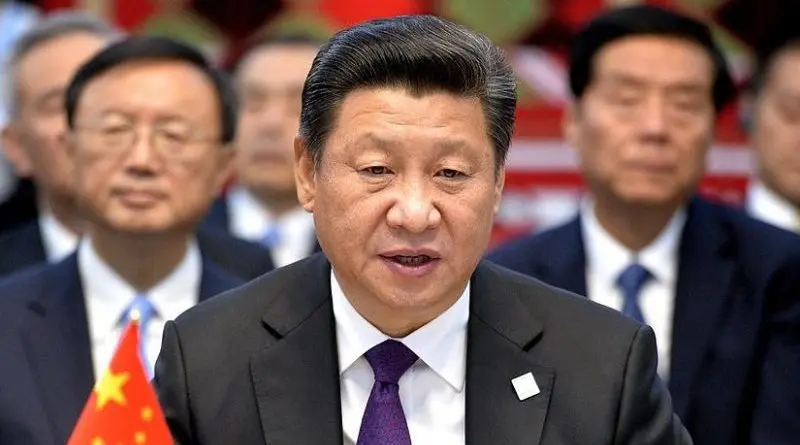China Nixes Leader Term Limits, Persecution To Continue
By UCA News
State-run media Xinhua released the government’s proposal on Feb. 25 to kill term limits for China’s head of state, which will be reviewed during the upcoming National People’s Congress — a parliamentary meeting that is mostly symbolic — on March 5.
Because the purpose of the national meeting is to exercise loyalty to the Communist Party, the proposal to scrap term limits from the constitution will be passed.
During Xi’s first five-year term — which ended with him in January enshrining his own doctrine into the Chinese constitution — he has aggressively targeted critics and potential critics, including religious groups.
“Xi has shown himself to be a muscular leader who will move and shake things up to grab more power for himself,” said Maya Wang, a senior researcher with Human Rights Watch.
“The consequences for ordinary Chinese people will be bleak — we all remember how, under Mao times, strongman-rule brought unchecked powers and massive suffering for ordinary people.”
Xi has notably passed sweeping laws on religion, seeking to significantly limit religious expression by mostly replacing the worship of deities with the worship of the Communist Party.
While these so-called religious regulations were not promulgated until Feb. 1, Xi has spent much of last year targeting religious groups — such as having iconography of Jesus swapped with that of his own face in southeast rural Jiangxi province, and having party cadres denounce religion in favor of atheism.
Enormous religious sites — including the Jindengtai (Golden Lampstand) Christian mega-church in Shanxi province and much of Larung Gar, one of world’s largest Buddhist institutions, in the Tibetan region — have been recently demolished by the government.
“Whenever the Communist Party is confronted by perceived questions of legitimacy or social instability, it tends to narrow the space for movement in academia, civil society and the mainstream media, and introduce measures that restrict human rights,” said William Nee, a China researcher at Amnesty International.
“With Xi apparently consolidating power for the foreseeable future, it could mean that the more hard-line camp that he is generally associated with could be ascendant for years and years to come.”
Xi has also taken pointed aim at ethnic and religious minorities, especially within the western Xinjiang Uyghur Autonomous Region — which has largely transformed into harsh security state.
Within the area — since spring last year — Xi has spurred the proliferation of re-education camps under regional leader Chen Quanguo, where human rights monitors have alleged that thousands from Muslim ethnic minorities have been interned and often forced to denounce their religion and customs. Instead, they are thought to be exposed to Chinese propaganda. It has also been alleged that they are sometimes subjected to hard labor.
“The implications for human rights in China are dire. We have seen continual deterioration in an already horrendous human rights situation under Xi,” said Kevin Carrico, a China expert who lectures at Australia’s Macquarie University.
Late last year, dissident Wang Dan — active in the 1989 Tiananmen movement — wrote about how Chinese students studying in the U.S. were discouraged from attending his forums, fearing reprisal.
Also in November last year, Australian publisher Allen & Unwin delayed the release of a book on domestic Chinese influence that was deemed sensitive, fearing a reaction from Beijing. Just a month before, leading Western publisher Springer Nature also acquiesced to China’s request to censor material perceived to be sensitive.
“This time, Xi is going global — the consequences will be felt well beyond China,” said rights researcher Wang.
China’s constitution currently caps the presidency and vice-presidency at two terms (10 years).
While the amendment also proposes to lift the term limits for the vice-presidency, currently held by Li Yuanchao, it does not strike term limits for the premier position, now served by Li Keqiang.
Whether or not Xi will eventually move on to rule for an unprecedented third term is at this time impossible to predict. Top-level Chinese politics remain a black box.

